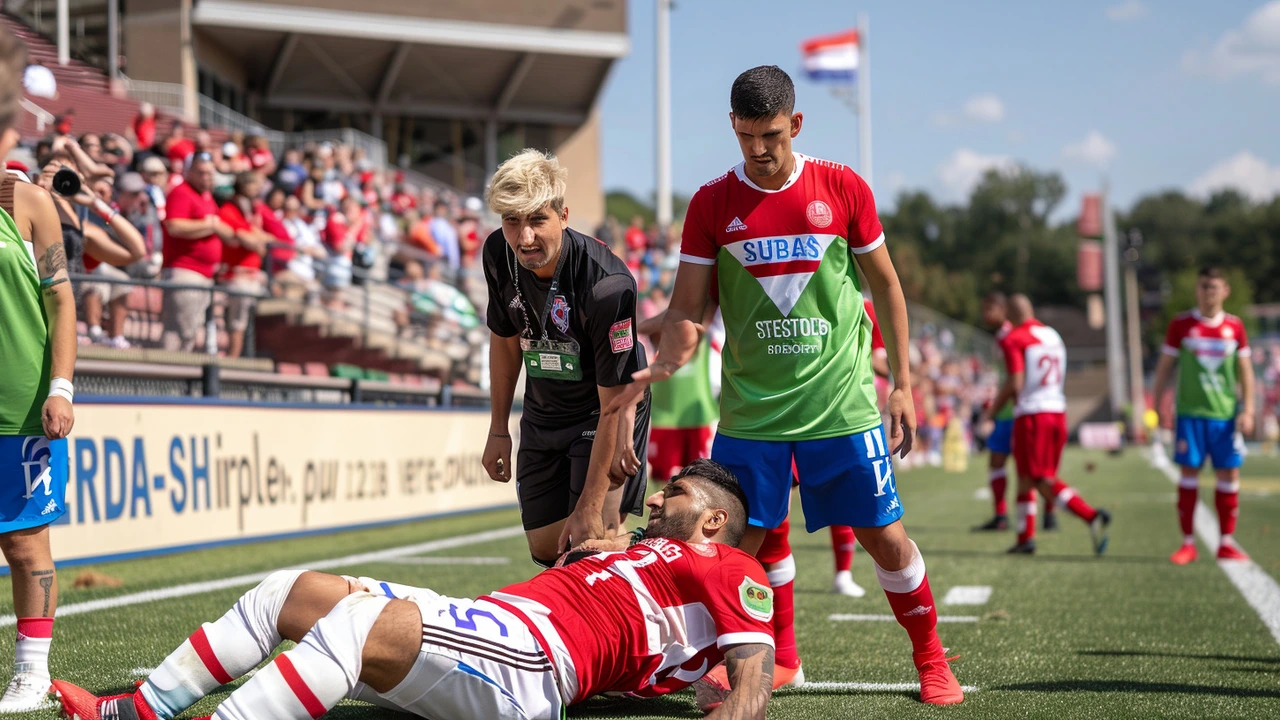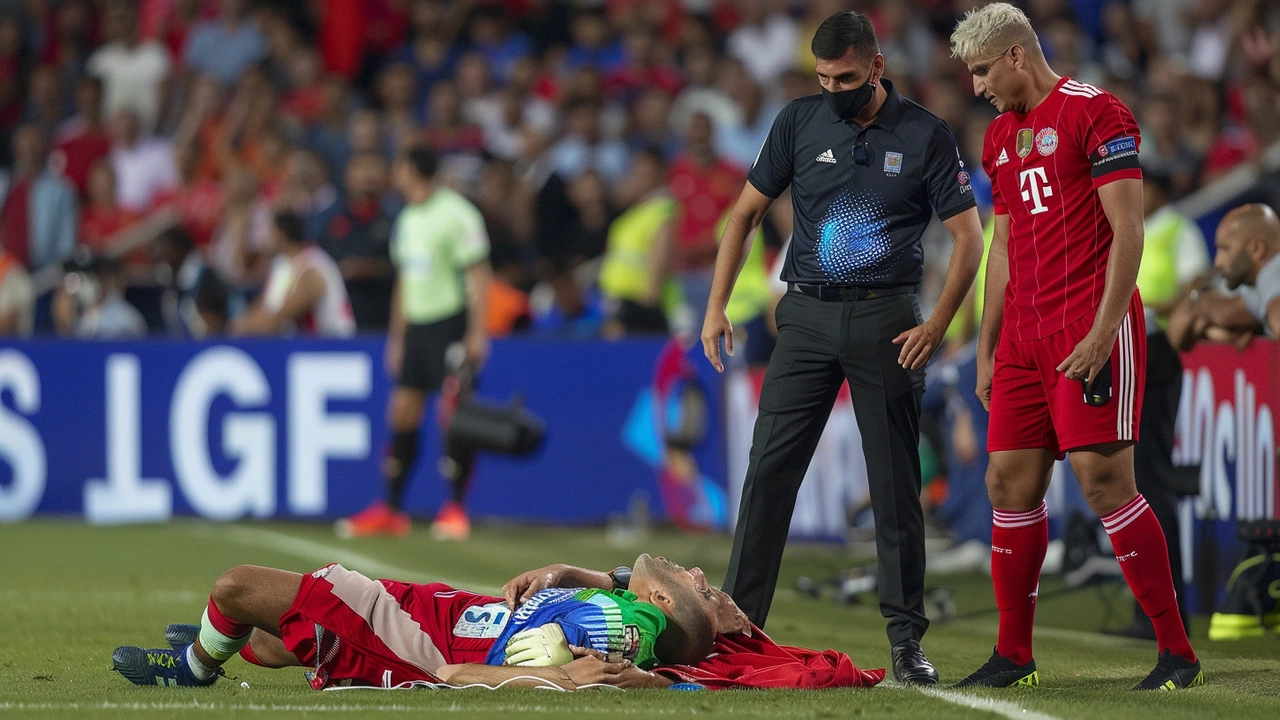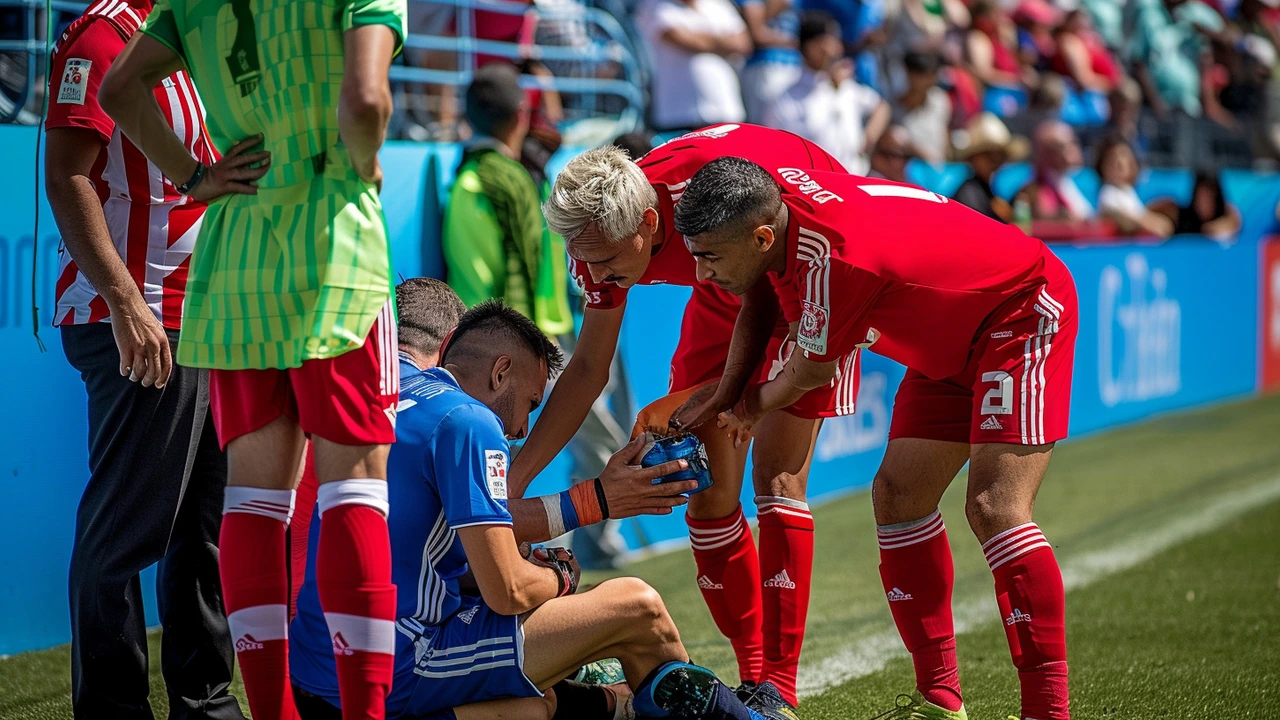Unforeseen Medical Emergency at Children's Mercy Park
The sweltering heat of a Kansas summer played an unexpected role in the Copa America Group A match between Peru and Canada at Children's Mercy Park. As adrenaline and competition soared on the field, few anticipated that the intense weather would introduce an unforeseen variable into the high-stakes game.
The match was eagerly awaited. Team line-ups bolstered anticipation, and as the initial whistle blew, fervor among fans in the stands was palpable. However, these expectations were cut short in the waning minutes of the first half. The temperature had peaked at a scorching 34 degrees Celsius (93 degrees Fahrenheit) with oppressive 53% humidity, creating a daunting environment not only for the players but also for the officials.
The spotlight momentarily shifted away from the players to assistant referee Humberto Panjoj. Panjoj, tasked with keeping close tabs on the action, became visibly unsteady. Sensing something was amiss, Canada’s goalkeeper, Maxime Crepeau, waved urgently towards the sidelines. The glances of concern quickly turned into coordinated action as medical staff rushed onto the field.
Immediate Response Shaped by Vigilance
Crepeau’s awareness and quick thinking undoubtedly made a significant difference. Noticing the early signs of distress, his swift signal allowed the medical response to be almost immediate. Panjoj received initial treatment on the field's sidelines, a scene that held the collective breath of everyone present. The medical team, equipped for such emergencies, moved expeditiously, ensuring Panjoj was stable before stretchered off the field to undergo further medical evaluation.
The referee's well-being was of paramount concern, yet the match had to continue. In the face of adversity, both teams demonstrated remarkable professionalism, maintaining their competitive spirit even as the harsh environmental conditions tested their limits.

Continuity of the Match Amid Chaotic Emotions
Despite the concerning interruption, the match progressed. The scoreboard stood at 0-0, reflecting the intense battle that was unfolding. Players had to push through not only their opponents' defense but also the physical strain that the oppressive heat inflicted. The resolve exhibited by the teams underlined their dedication and resilience.
Argentina's presence in Group A, already leading with three points, had set a benchmark. Peru, Chile, and Canada remained in the fray, fighting to advance. Every pass and tackle held heightened significance as the tournament’s stakes became clearer.
Broader Implications for Tournament Organizers
This incident served as a stark reminder for tournament organizers about the importance of considering environmental factors in scheduling and preparedness. High-temperature matches significantly increase the risk for players and officials. While the desire to deliver an uninterrupted spectacle for fans is understandable, safety protocols must prioritize the well-being of everyone involved.
The necessity for adequate hydration breaks, shaded rest areas, and contingency plans for extreme weather cannot be overstated. Elevating the standards of medical preparedness ensured that unforeseen situations such as Panjoj’s collapse were managed efficiently. Nevertheless, discussions on how to better adapt game schedules to mitigate these risks will likely gain momentum post-tournament.

Reactions from the Football Community
The football community at large expressed its solidarity with Panjoj. Messages of support from players, fans, and fellow referees poured in. Maxime Crepeau’s actions garnered widespread praise, highlighting the critical role of vigilance and unity in ensuring on-field safety.
In an era where the rigors of professional sports continue to push boundaries, moments like these underscore the essence of human empathy and collaboration. Crepeau’s alertness and the medical team’s prompt response exemplified the collective effort required to safeguard the participants’ health and integrity.
Looking Ahead
As the Copa America progresses, organizers and teams will undoubtedly reflect on this incident. It serves as a learning opportunity to enhance safety protocols further and ensure a balance between competitive intensity and health safeguards.
For the players, the focus remains on advancing through the tournament. But the memory of this match will linger, a testament to the challenges faced and the human spirit’s ability to overcome them.
The game ended with air-heavy tension, but both teams imbibed a sense of gratitude and caution as they prepared for their subsequent encounters. As fans watched the drama unfold, one thing became clear: in sports, the unpredictable is often the most poignant.



Hailey Parker
June 28, 2024 AT 18:23They schedule these games like it’s a picnic in the park. No shade? No water breaks? No mercy? I’ve seen dogs get more breaks than these officials. And don’t even get me started on how they treat the players like robots.
John Bartow
June 28, 2024 AT 18:50Mark L
June 30, 2024 AT 04:53Orlaith Ryan
July 1, 2024 AT 10:28Jacquelyn Barbero
July 1, 2024 AT 19:07toby tinsley
July 2, 2024 AT 06:42Let’s not just memorialize Panjoj. Let’s redesign the game around care.